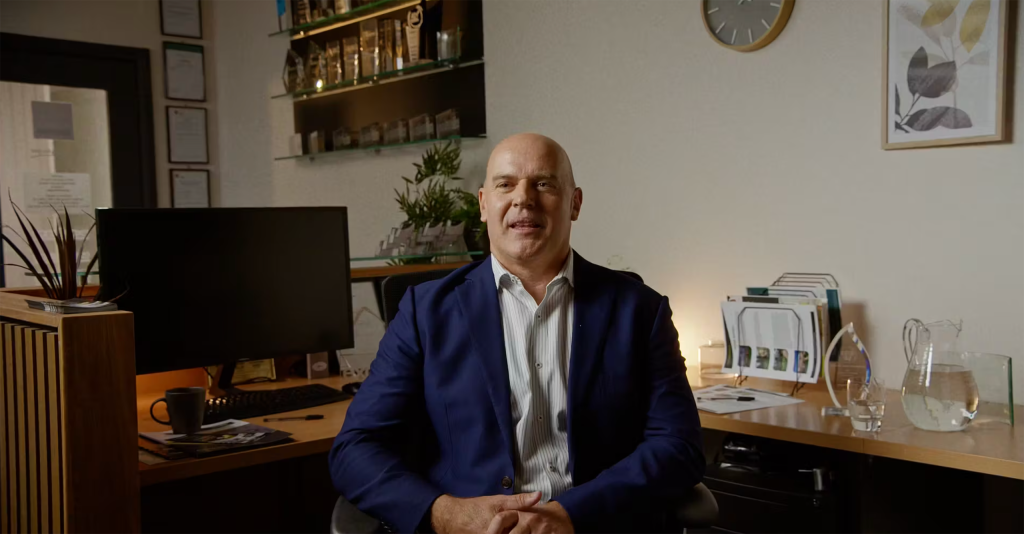Want to buy a first home fixer-upper? Here are some things you should know.

Looking for your first home and weighing up all your options? Maybe you’ve got your eyes fixed on a fixer-upper? Great! Before you take one more step towards stepping inside, it’s worth considering the realities of renovations. Hey, it’s nothing scary. But just like all things home-buying, there are a few things to think about before you commit to a particular property. Let’s find out what they are.
It could be an affordable way to build your dream
A fixer-upper might capture your attention for a number of different reasons, but the biggest might be the ‘a’ word: affordability. In the shape of a fixer-upper, you might find a home that will become the perfect place in the future (once you’ve renovated) but for a cheaper outlay now than finding that perfect place that needs no work. So, whether you’re getting started in property wherever you can or choosing a place that has the potential to be a dream home, a fixer-upper could be a cost-effective way to make a short-term start on building long-term dreams. If your budget only allows for an unrenovated version of your ideal place, you can secure it now and work on it over the years, if you’re up for it.
Spotting fixer-upper potential is a bit of a skill
The home you buy to live in will probably be the most valuable asset you’ll ever own. And this asset will play a big role in your financial future. So, while your main focus could be on finding the comfiest, most-stylin’ home that suits you to a tee, it’s financially savvy to not ignore the money side of it too. When it comes to fixer-upper investments, the name of the game is comparing the value of two equivalent properties: one renovated and one unrenovated.
Look at the difference in price. Adding the cost of your potential renovation (you’ll need to have done a fair bit of research into the costs of reno) to the price of the unrenovated place and comparing that to the price of the renovated place will give you a clear picture of whether you’re getting value for money and building yourself a nice little nest egg for your future. But of course, life isn’t an investment transaction, so if you’re happy to pay a little more to make the perfect home, and you can afford it, then who is stopping you?
Consider the time it takes and the emotional tax
Along with making sure the money and investment side of things are all in a good place, it’s a good idea to check in with yourself and see if you’ve got the time and the emotional energy to take on such a project.
The fact is, good things take time, and that goes for renos, too. Things happen. Timeframes can blow out for various reasons, so steel yourself for that. Budgets can come under pressure, so it could be smart to keep a little wiggle room in your figures (and in your expectations). It will be a fair bit of work. Even if you’re as prepared as possible, it will be a rollercoaster: there will be ups, there will be downs, so make sure you’re buckled up and ready to hold on tight. It will be worth it in the end.
Know when to back out
It’s only human to have an emotional response to finding a dream first-home fixer-upper with oodles of potential. Cool warehouse conversion? Stylish art deco delight? Classic heritage home that just needs a bit of work? Be still, our beating hearts. It’s easy to get swept away in how beautiful and liveable the end product could be and ignore some clear warning signs along the way. So, check yourself. How you check yourself is totally up to you, but maybe create a way to make sure you’ve done the numbers, your heart isn’t overruling your head or you’re overlooking clear red flags like potential budget blowouts or insurmountable council hurdles. You could enlist a friend to ask you some hard questions or make yourself a checklist. Having a safety mechanism will help you know when to cool off and look for something else. Don’t sweat it. The right fixer-upper first home for you is out there.
Important information
Any advice in this article does not take into account your objectives, financial situation or needs, and you should consider whether it is appropriate for you. Before making a decision in relation to our home loan products, you should read the Terms and Conditions booklet and Fees and Limits schedule, available at ing.com.au or by calling 133 464. All applications for credit are subject to ING’s credit approval criteria. Fees and charges apply. ING is a business name of ING Bank (Australia) Limited ABN 24 000 893 292, AFSL and Australian Credit Licence 229823.
In relation to our credit products, you should consider our Terms and Conditions booklet, Fees and Limits Schedule, Credit Guide and Key Facts Sheet available at ing.com.au when deciding whether to acquire, or to continue to hold, a credit product.
Did you find this page helpful?
You might be interested
Got your heart set on a fixer-upper as your first home? Seven expert tips to realise your reno dreams.

So you’ve done your research and a fixer-upper feels like the right first home for you. And, you’re 99% sure you’re going to do it. Good on you! The nice news is, you’re not alone. As Belinda Smith of Renovate & Real Estate tells us, these days, many Australian first home buyers like you are choosing fixer-uppers. But along with the joy of making your first home truly your own, there are a couple of things to think about, like juggling all the work, living in while renovating, keeping your energy levels up and – yes, we’re a bank so we’re going to mention money – sticking to budget. To help you get a handle on all that and more, we’ve asked Belinda for her essential tips on all things fixer-upper. Let’s hammer it out!
1. Play by the rules
Research is key, Belinda says. “Walk through as many open inspections as you can to get to know an area well. That way, you’ll know when you have picked a really good property in a really good street.” Then, consider what you’re going to need to do to fix up the property and find out if you’ll be allowed to do it all. “Look really closely at the council regulations, particularly if you’re thinking of doing a structural renovation and will need plans approved.” Generally speaking, you won’t need to submit plans for a cosmetic renovation, like painting the exterior walls or laying new carpet.
“If you’re looking at an apartment, you’ll need strata to review what changes you wish to make,” Belinda tells us. “An engineers report may be necessary if removing or opening up a wall and, when replacing existing flooring, an acoustics certificate with full specifications of the flooring is often requested by strata. These will add time and money to the project.”
It pays to get familiar with the rules from the start. “Simply, the more research you do early on, the fewer surprises you’ll have during the renovation.”
2. Educate yourself before you start
A little (or a lot of) research goes a long way, as Belinda tells us. “It’s important to get educated on what makes a good property and learn the ins and outs of renovation strategies before embarking on a project. There is a lot of money involved, so it’s not a great idea to run a renovation by trial and error. So, get organised. Also, get help. Renovating becomes more fun and much easier when you can count on the advice of someone who has done it before, or you have a community of experienced renovators and happy homeowners cheering you on.”
3. Work out how much money and time to put in
And, it’s important to know your abilities, your skills and your limits. “Renovating your own home while living there removes your time constraints, as there is less rush to get the renovation completed,” Belinda says.
“Only take on the tasks you will enjoy doing, are competent at, and know won’t take too long to do or slow a project down too much. Of course, keep in mind that licensed trades need to be called for electrical and plumbing work.”
On the money side of things, Belinda has a simple guideline to help you consider your budget. “Generally speaking, you could allocate about 10 per cent of the purchase price of the property to the renovation. There are exceptions to that, like factoring in the estimated sales price of the property when it is complete (if you plan to sell later), what your budget allows and, of course, what scale of renovation you’re looking to do.” Keep in mind, not all lenders lend money for all renovations such as a construction loan (for a large scale renovation, extending the home with another room, or making a kitchen bigger for example).
4. Adjust to living in while you’re fixing up
With fixer-uppers, it’s often the case that you’ll need to live in the home while you do the work. Belinda has some advice here. “First, clean the bathrooms and kitchens so they are usable. Then tackle one room at a time. I suggest that the first room to complete is a bedroom, so you have a clean, organised space to rest and enjoy each night. Plus, a bedroom does not take long to renovate. Keep doors shut and seal off rooms with plastic and tape to prevent dust from entering every room. Be mindful of the safety of children in the house, or anyone for that matter, around tradespeople, tools, steps and ladders.”
5. Work productively with builders and tradies
Choosing the right tradie is a smart step, and working on your communication will help, too. “Always check their credentials (things like licences and insurance), and get a sense of the quality of work they have completed before hiring. Don’t rush this. It is important to work with quality tradespeople who are not only capable of doing the job but are also a good personality fit for you. Renovating can involve making a series of quick decisions, so communication is key. Supporting tradespeople so that they can move through your project as smoothly as possible helps, too. So think about things like keeping the worksite organised, ensuring they have easy access to a bathroom and somewhere comfortable and undercover for breaks,” Belinda says.
6. Get advice from agents
It’s true: agents are your allies, as Belinda explains. “It is impossible to be an expert at all things, so there’s nothing wrong with hiring a buyer’s agent who can research and negotiate on the right property on your behalf. At the other end, real estate agents are masters of their craft, too. Both can be very aware of their local area, market demand, buyers’ desires and so on, so they’re great to develop relationships with.”
7. Steel yourself for the physical and emotional journey
Last but not least: get ready for the ride. “It is important to plan, order product in advance and be organised, all to stay on top of the renovation,” Belinda says. “At the same time, it is equally important to not get too wrapped up in it – to not worry about every little detail. You should enjoy the creative process and the outcome, be proud of the final product, reflect back on how the property looked before the renovation and reward yourself for your good work. Ultimately, renovating should not be exhausting. It is important to hire people to share the labour and take some time out when needed. There’s no shame in doing that. In fact, that way you’ll be willing and able to enjoy the ride even more.”
Important information
Any advice in this article does not take into account your objectives, financial situation or needs, and you should consider whether it is appropriate for you. Before making a decision in relation to our home loan products, you should read the Terms and Conditions booklet and Fees and Limits schedule, available at ing.com.au or by calling 133 464. All applications for credit are subject to ING’s credit approval criteria. Fees and charges apply. ING is a business name of ING Bank (Australia) Limited ABN 24 000 893 292, AFSL and Australian Credit Licence 229823.
ING does not endorse and is not affiliated with third parties mentioned in this article. ING is not responsible for any services provided by third parties nor does ING accept any liability or responsibility arising in any way from any products or services supplied by the third parties.
In relation to our credit products, you should consider our Terms and Conditions booklet, Fees and Limits Schedule, Credit Guide and Key Facts Sheet available at ing.com.au when deciding whether to acquire, or to continue to hold, a credit product.










